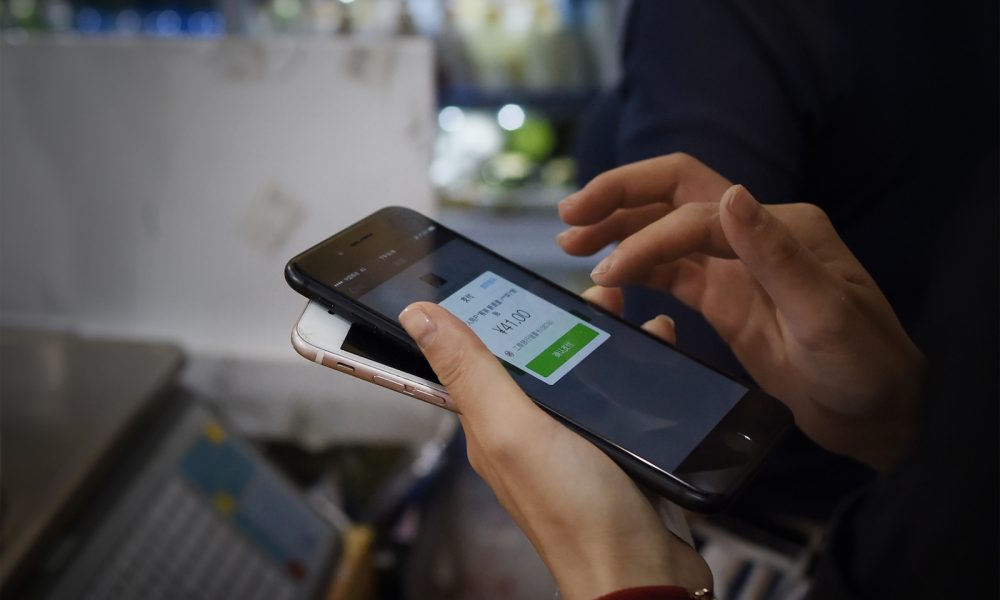Category: Finance
Vietnam to Asses Cryptocurrency Development Through Central Bank
Nikkei Asia reported that the government of Vietnam has assigned its central bank in the R&D of its very own blockchain-based digital currency. The policy came forth in Prime Minister Nguyen Xuan Phuc’s Decision 942, which outlined the government’s approach to digitalizing the country with virtual currency based on blockchain technology by 2030.
According to Nikkei, Binh Nguyen Thanh, a coordinator at RMIT University Vietnam’s FinTech-Crypto Hub, said that the government authorities will have more control over the virtual money than having it be left to decentralized software and private enterprises. Thanh quoted, “I think they will look at how the experiment in other countries goes.” As back in October 2020 last year, Cambodia launched a state-backed digital coin called “Bakong,” while neighboring countries like Cina and Thailand are reported to have similar thoughts.
He further explained that in Vietnam, cryptocurrency is as it is, will remain in the grey area of an obscured regulation. Dabbling in bitcoin and applying it as a means of payment is a violation of the law and may be subjected to administrative or criminal sanctions.
Tonik Raised USD17Mil for Neobank Services in Philippines
The Philippines ‘ first Neobank Tonik successfully raised USD 17 million in the pre-series B funding that brings its total funding to USD 44 million. This funding is led by Singaporean VC firm iGlobe Partners. The round of investors includes Sequoia India, Altara Ventures, Insignia Venture Partners and newly joined investors are Baring Vostok Capital Partners, Citius VC firm, and some Philippine family offices.
Neobank Tonik headquarters located in Singapore with 40% of the local subsidiary owned by Philippine investors. Since launching in March 2021, it has received positive feedback with services like deposit, payment, and card products to users in the Philippines. There are 30,000 consumers on their fintech platform with a positive balance sheet of over USD 20 million a month. The company functions with a rural banking license in waits for regulatory approval from Phillippine central bank to approve the digital banking license.
Greg Krasnov, Tonik CEO and founder mentioned that the new funding is to help the bank to accelerate its growth with product development in mind. As they are the first-in-the-market digital financial services, they are expanding significantly for the next 12 months. The plan is to provide offers on payments and rolling out consumer loans. Their current financial services are offering an interest rate of up to 6 percent per annum.
Soo Boon Koh, founder and Managing Partner of iGlobe Partners stated that it is an impressive result for Tonik to launch recently and the consumers are ready to adopt. This shows that the company resonates well with the local needs of underserved market. According to the 2019 Financial Inclusion Survey, there are still 72 million adults remain unbanked with 71% of the country’s population. This includes the young people with a median age of 24 who are capable of using smartphones for services. Hence, there is a huge underserved market in the current banking system.
A Closer Look at the Fintech Scene in Southeast Asia
Fintech is on the rise in Southeast Asia, find out how fintech startups are changing the regional financial landscape.
All eyes have been on Southeast Asia nations for fintech growth in 2019 as Southeast Asian nations have been reported among the hottest spots for fintech opportunities.
But before we continue, let’s clear up the definition of what is fintech.
Short for financial technology, fintech refers to the converge of technological innovation in the delivery of financial services, such as digital payments, investments, financing, insurance, advisory services, among some.
Note that these services are not new, and are often offered by large banks and other traditional financial players including insurance companies and brokerage firms.
What fintech startups are doing is revolutionizing the financing process in Southeast Asia by enhancing inefficient products and service channels, as well as opening up opportunities to once-excluded customers.
According to the McKinsey Global Institute (MGI), the region has 266 million financially excluded people, inclusive of those that derive of access to bank accounts and other basic financial services like credit cards and insurance.
Businesses in Southeast Asia, on the other hand, counts up to 30 million SMEs underserved by the financial system, which collectively face a credit shortfall of US$175 billion.
Combining this gap in financial access with growing economic activities and internet access in the region, many founders and startups have turned to the digitization of these financial services.
A report by CB insights has also shown an optimistic outlook for companies in the space of fintech stating that fintech in Southeast Asia is reaching new records for deals and funding.
CB Insights notes that in 2018, funding to fintech startups across Southeast Asia grew 143% year over year, hitting a record of US$485 million across 68 deals.

Source: CB Insights
Compared to 2017, the dual growth in deal count and funding comes as major investors such as China’s Ant Financial and Japan’s SoftBank have been making bigger deals in the area.
1000+ Fintech Startups in Southeast Asia
At the same time, over one thousand fintech startups have been built in the last few years, among which over 490 are found in Singapore.
This is unsurprising as Singapore sees strong support from the government in building the city-state as Southeast Asia’s fintech hotspot, leading particularly in the development of smart cities and hyper-connectivity.
It is home to some of the most well-funded fintech companies, including cryptocurrency trading startup Quoine (total funding: US$123 million) and M-Daq which provides Over The Top (OTT) forex applications. The startup secured a total of US$98.7 million in funding, including a massive USD$87 million series C round in 2015.
Indonesia, the largest economy in Southeast Asia is also generating fintech startups at a great pace. The country has a population that is very open to alternative payment methods and a total of 262 fintech companies. About 78 fintech companies are operating in the payment segment, while 20 and 30 companies are in the lending, savings, and investments segments each.

According to government statements, Vietnam plans to become a cashless society by 2020. The country aims to reduce the number of cash transactions to less than 10% of total payments in consumer-ends such as supermarkets, shopping malls and distributors.
The plan includes proposals to develop and increase new payment methods in rural and remote areas of the country to boost financial inclusion as to at least 70% of Vietnamese over the age of 15 owning a bank account by the end of 2020.
In the blockchain sphere, the Thailand market is becoming increasingly crypto friendly. The Stock Exchange of Thailand (SET) plans to apply for a digital license which will enable it to operate a cryptocurrency exchange.
Not Just Fintech Startups
Of course, fintech is not only about bank, insurers and new fintech startups – many online digital platforms can also add a financial dimension to them.
In Southeast Asia, ride-hailing startups like Grab and Go-Jek are looking to build the super app and has also expanded into digital payment platform through GrabPay and Go-Pay.
Peng Tsin Ong, a Managing Partner at Monk’s Hill Ventures said, “this is not only because every service ends with a transaction, but because it broadens the amount of information that can be collected by these companies.”
Venturing into fintech positions these companies to expand their understanding of customers and improve both their financial and non-financial products.

For example, Grab can not only track its user’s movements, schedules but also their financial habits, which opens doors for new products and services. Grab’s CEO Anthony Tan has spoke of Grab’s plans to use the information to create alternative credit ratings that could then be tied to banking products.
Meanwhile, with such a disruptive force into the financial industry in Southeast Asia, banks have also begun relying on open innovation to stay competitive.
Singapore’s largest bank DBS has spent US$3.7 billion on technology over the five years up to 2016, launching digibank, the first mobile-only bank with 82% of requests automated using artificial intelligence in India.
Fintech In Southeast Asia is Still on Growth Spurt
“Southeast Asian companies have raised some capital and are now putting efforts into scaling across the region. It’s time to bring products to market and produce numbers for the next fundraising round,” said Markus Gnirck, the co-founder of tryb Group.
Bolstered by increased funding, large foreign investors, and continuous innovation, fintech startups in Southeast Asia are still growing as they expand and extend this habit of expenditure among the people in Southeast Asia.
Is a cashless society in sight for Southeast Asia?
Or is a digital platform going to win in fintech?
For now, it’s still too early to say but one thing for sure is that the innovation in fintech is disrupting the lives of unbanked society for the better.
Formation Group raised US$357 million for debut fund to invest in early and growth stage companies
Formation Group has launched its debut fund worth US$357 million of commitments in partnership with former Facebook chief financial officer and San Francisco 49ers co-owner Gideon Yu serving on the investment team, according to filings with the SEC.
The maiden fund is set up to bridge innovation between Silicon Valley and Asia, whereby it will focus its investments on a number of early and growth stage companies.
In addition to providing capital, Formation Group will also provide operational support and relationships to bring these opportunities to fruition.
“Our investment in Bowers & Wilkins is a prime example of this strategy, in which we enabled a small Silicon Valley startup (EVA Automation) to execute an unprecedented acquisition of an established, profitable, 50-year old iconic brands in Bowers & Wilkins,” according to a spokesperson from Formation Group.
Besides, the firm’s founding managing partner Brian Koo was a former founding partner of Formation 8 and a founder of InnovationHub. He currently serves on several boards including NextVR, Memebox, and YelloMobile.
While Gideon Yu is the chairman and chief executive officer of Bowers & Wilkins. Previously, he was also a General Partner at Khosla Ventures and Treasurer and SVP of Finance at Yahoo.
The company’s offices are located in Palo Alto, Korea, and Singapore. The portfolio also includes on-demand delivery Honestbee, and ride-hailing service Go-Jek and South Korea’s Dayli Financial Group.
By Vivian Foo, Unicorn Media
Temasek unit Heliconia launches US$422 million International Partnership Fund to help Singaporean firms expand globally
Heliconia Capital Management, a unit of Temasek Holdings, has announced the launch of a S$600 million (about US$422 million) International Partnership Fund (IPF) in government capital.
The new fund will be used to co-invest with Singapore-based enterprises, helping local enterprises to internationalise their business operations and expanding into oversea markets via acquisitions.
Its joint investment policy focuses on Asian markets, encouraging local firms to partner with other Asian companies to engage in activities such as extending product lines, brands or value chains, in addition to gaining access to markets, channels, and technologies.
Specifically, the fund will support firms that intend to grow by acquiring their regional peers, but which may not have sufficient capital to proceed with its acquisition.
In this way, the fund will hold opportunities for smaller local firms by allowing them to link up with Heliconia as a consortium partner that is able to co-invest in the target company alongside the Singapore acquirer.
Heliconia will come in purely as a financial investor and will not compete over the acquisition’s ownership. Firms that have not identified an acquisition target can also opt for Heliconia’s help to source deals by tapping its extended networks, which only large private equity funds can maintain.
However, to draw on the funds, firms must meet the criteria of being headquartered in the city-state and to have post annual revenues no higher than S$800 million ($564 million). These conditions place their investment focus firmly on middle market enterprises.
“The creation of the fund is part of an effort to develop a smart financing ecosystem here, in Singapore,” said Finance Minister Heng Swee Keat. “More funding support is also being targeted at infrastructure developers to help them undertake more oversea projects.”
By Vivian Foo, Unicorn Media




